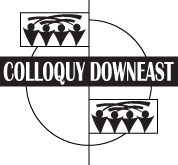Understanding Russia Today
| |||||||
What is the historical and political basis of why Russia and its leadership is presently acting on the world stage as it is? Can a look at post-Soviet era Russia and its leadership in the 1980s and ’90s help explain the popularity of a leader such as Putin within his own country? There is debate about what should be our reaction to present Russian aggression. Should the West re-impose a policy of sustained “containment” as was the case with the Soviet Union OR should we adopt a more “liberal” view which acknowledges Russia’s “sphere of influence” vis-à-vis its neighbors.
Courtenay Haight is a retired banker, a farmer and a pan player.
Syllabus
This colloquy will be divided into two segments:
- The historical and political basis of why Russia and its leadership is presently acting on the world stage as it is. A brief review of post-Soviet era Russia and its leadership in the 1980s and 1990s might help explain the popularity of a leader such as Putin within his own country.
- What should be the West’s reaction to present Russian aggression in the Ukraine and elsewhere both presently and into the future?
There is a debate about what our reaction should be—those suggesting a re-imposition of the policy of sustained “containment” which dominated the West’s policy toward the Soviet Union for many years prior to the collapse of the Soviet state versus those suggesting a more “liberal” view which acknowledges Russia’s “sphere of influence” vis-à-vis its neighbors. This latter view also acknowledges that sustained NATO expansion ever closer to Russia’s borders has taken place, despite assurances that this expansion would not happen.
▼ Reading Materials
Reading Materials
As we discuss modern-day Russia, our discussion will be enhanced to the extent that you read some or all of the following recommended materials:
- The Man without a Face, Masha Gessen, Riverhead, 2013 [Amazon][MaineCat]
- Putin’s Russia, Life in a Failing Democracy, Anna Politkovskaia, Henry Holt Company, 2007 [Amazon][MaineCat]
- The Russian Moment in World History, Marshall T. Poe, Princeton University Press, 2003 [Amazon][MaineCat]
- Armageddon Averted. Stephen Kotkin, Oxford Univ. Press, 2008 [Amazon][MaineCat]
- The Limits of Partnership, Angela E. Stent, Princeton Univ. Press 2014 [Amazon][BHPL][MaineCat]
In addition, the following articles from Foreign Affairs magazine (available at the Blue Hill Public Library) will help fuel the discussion:
Sep/Oct 2014
- pp 87 ff, by John Mearsheimer
- pp 90 ff, by Mary Elise Sarotte
Nov/Dec 2014
- pp 167ff, by Michael McFaul, et al.
Jan/Feb 2015
- pp 96ff, by Matthias Matthijs & G.F. Treverton
- pp 108ff, by Hans Kundnani
- pp 150ff, by Sarah E. Mendelson-a book review
May/Jun 2015
- pp 48ff, by Ivan Krastev & Mark Leonard
▼ Registration
Registration
Bookings are now closed (or the colloquy has been cancelled)
We aren't currently accepting bookings for Understanding Russia Today.
If you are trying to pay for a colloquy that you've already attended or have questions about refunds, please contact our Treasurer to work out the details.
▲ Hide...
